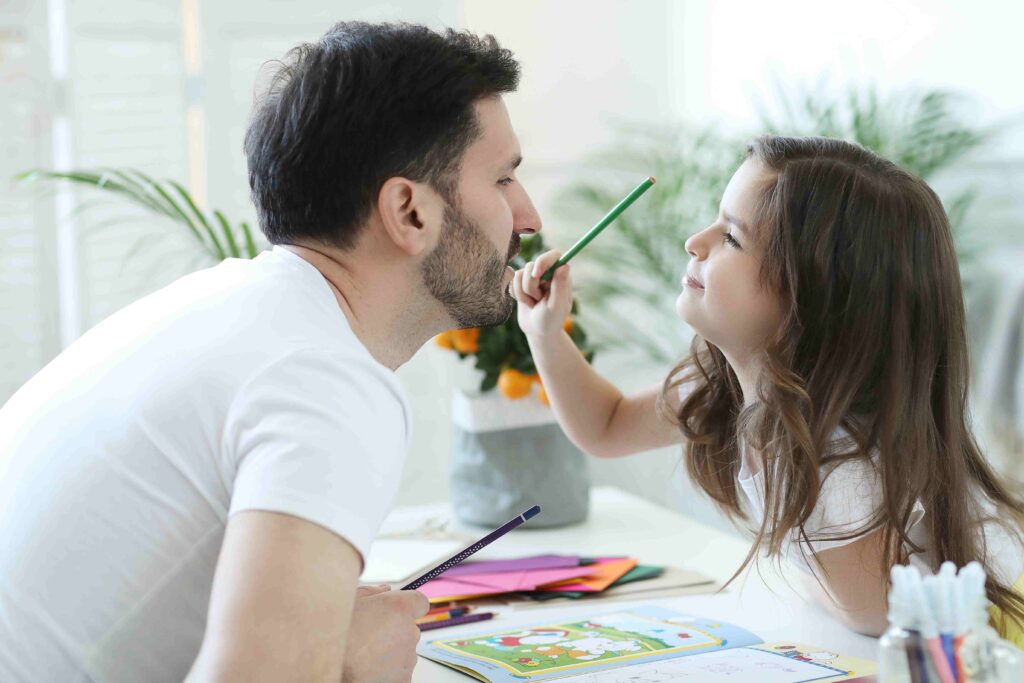

Genie Chat

Genie Chat
Parenting is a journey of constant learning, and one approach that has gained significant attention is mindful parenting. In a world filled with distractions and busyness, practicing mindfulness can bring profound benefits to both parents and children. Let’s delve into the concept of mindful parenting and explore how it can transform your parenting experience.
Understanding Mindful Parenting

Mindful parenting is about being fully present in the moment with your child, fostering deep connection and awareness. It involves bringing mindfulness techniques, commonly used in meditation, into your daily interactions as a parent.
The Power of Presence

Mindful parenting revolves around being fully engaged in whatever you’re doing with your child. This means putting aside distractions and focusing on the here and now.
Example: When spending time with your child, put away your phone, turn off notifications, and engage in active listening and interaction.
Mindful parenting emphasizes listening not just with your ears but with your heart. This means tuning in to your child’s words, tone, and emotions to truly understand their needs.
Example: Instead of multitasking, dedicate your attention to your child’s stories, allowing them to express themselves fully.
Mindfulness encourages observing your child’s behavior without passing judgment. This open-hearted observation can lead to greater understanding and empathy.
Example: If your child is struggling with a task, observe their efforts without labeling their attempts as “good” or “bad.” Instead, acknowledge their hard work.
Mindful parenting equips parents with tools to manage their own emotions, allowing them to respond to their child’s behaviors in a calm and composed manner.
Example: If your child is upset, take a moment to breathe and center yourself before responding, modeling emotional regulation.
Being present and attentive fosters a deeper connection with your child. Mindful parenting encourages stepping into your child’s shoes and experiencing their emotions with them.
Example: If your child is frustrated, express understanding by saying, “I can see that you’re feeling frustrated right now.”
Mindful parenting teaches patience by embracing the reality of each moment. This helps parents let go of expectations and accept their child as they are.
Example: If your child takes longer to complete a task, resist the urge to rush them. Allow them the time they need to explore and learn.
Mindful parenting emphasizes the importance of self-care for parents. Taking care of yourself enables you to be more present and attentive to your child’s needs.
Example: Dedicate time each day for self-care activities such as meditation, reading, or pursuing hobbies that rejuvenate you.
Practicing mindfulness allows you to savor the small, joyful moments in your parenting journey and cultivate gratitude for these experiences.
Example: Take a moment to appreciate the laughter shared during playtime or the warmth of a hug before bed.
Transitioning between activities mindfully helps children smoothly shift their focus from one task to another.
Example: Before transitioning from playtime to bedtime routine, engage in a short mindfulness exercise, like deep breathing or a calming visualization.
Mindful parenting encourages reflection on your parenting journey, enabling you to learn and grow as a parent.
Example: At the end of the day, take a few minutes to reflect on your interactions with your child, noting moments of mindfulness and areas for improvement.
Practicing mindful parenting not only benefits you and your child in the present but also lays the foundation for your child to develop mindfulness as they grow.
Example: Engage in mindful activities together, such as nature walks, meditation, or mindful coloring, to instill these practices in your child’s life.
As you embark on the path of mindful parenting, remember that it’s not about perfection but about being present and engaged with your child. Subscribing to Virtual Parenting Hub offers a wealth of resources, techniques, and support to help you cultivate mindfulness in your parenting journey. Join a community of mindful parents dedicated to creating meaningful connections with their children and nurturing a harmonious family life.
Also Read: The Sensitive Soul of Gentle Parenting: Nurturing Connection and Empathy